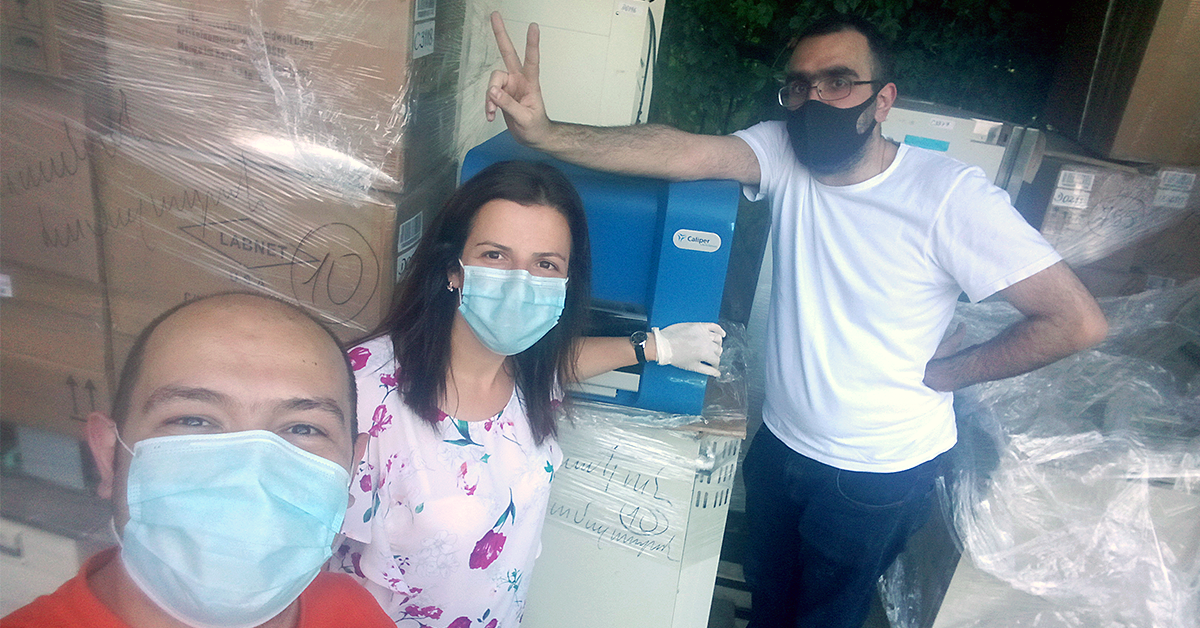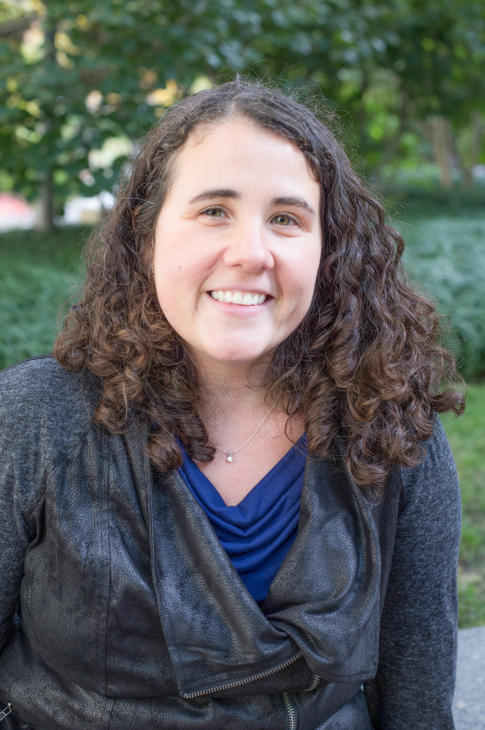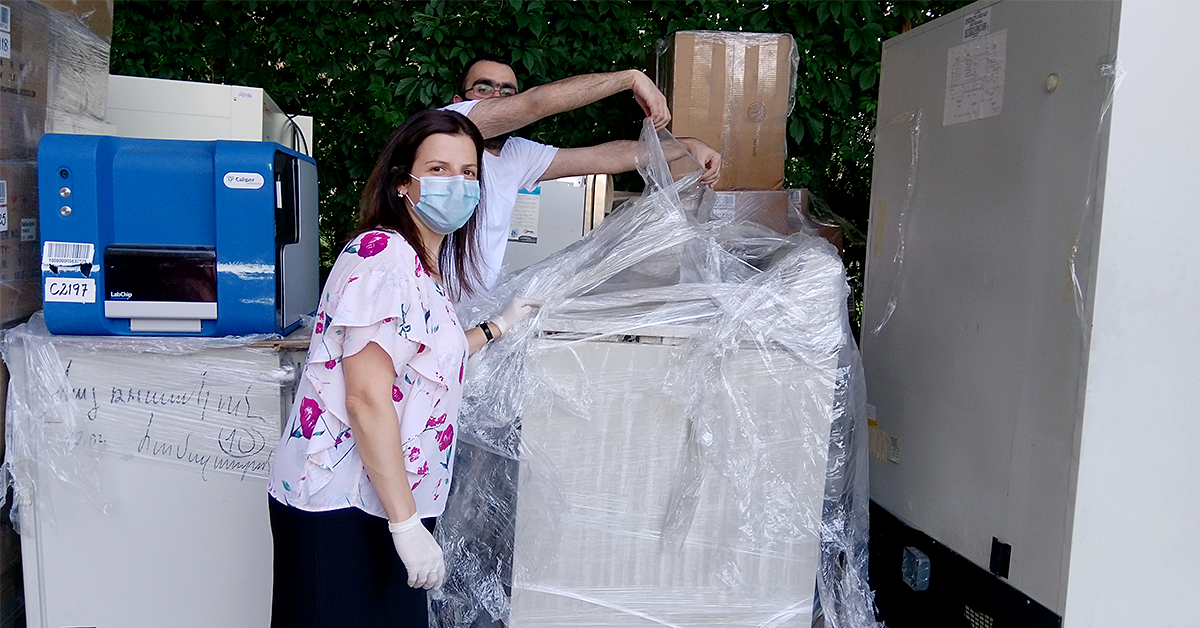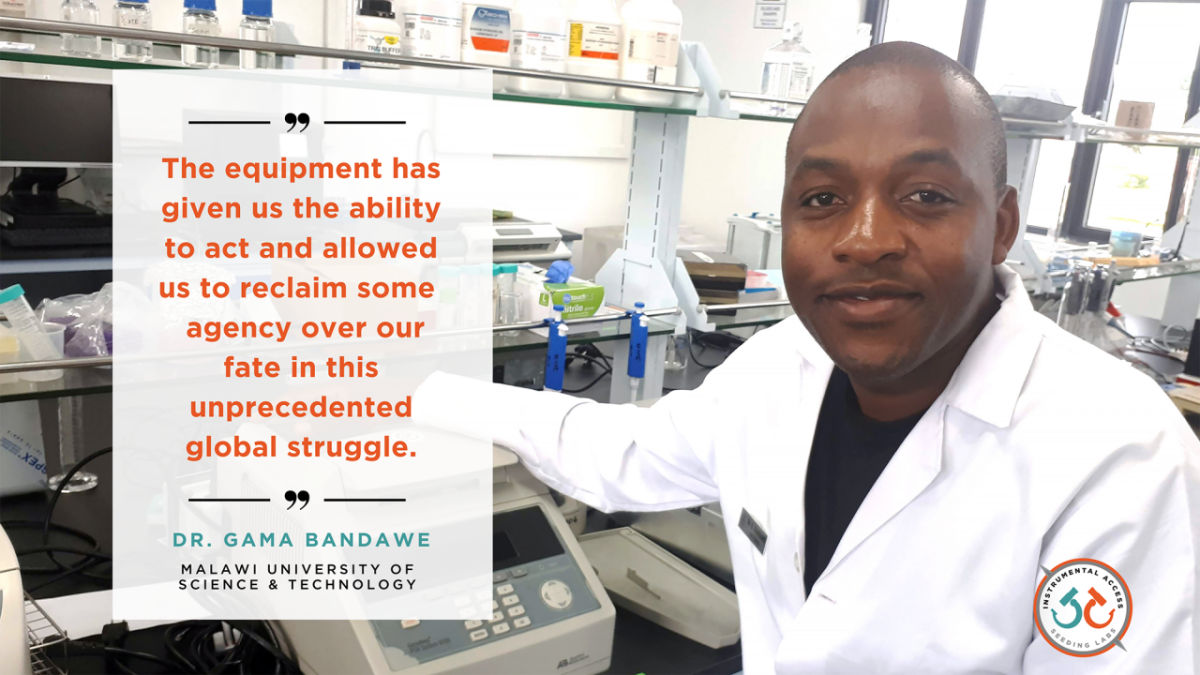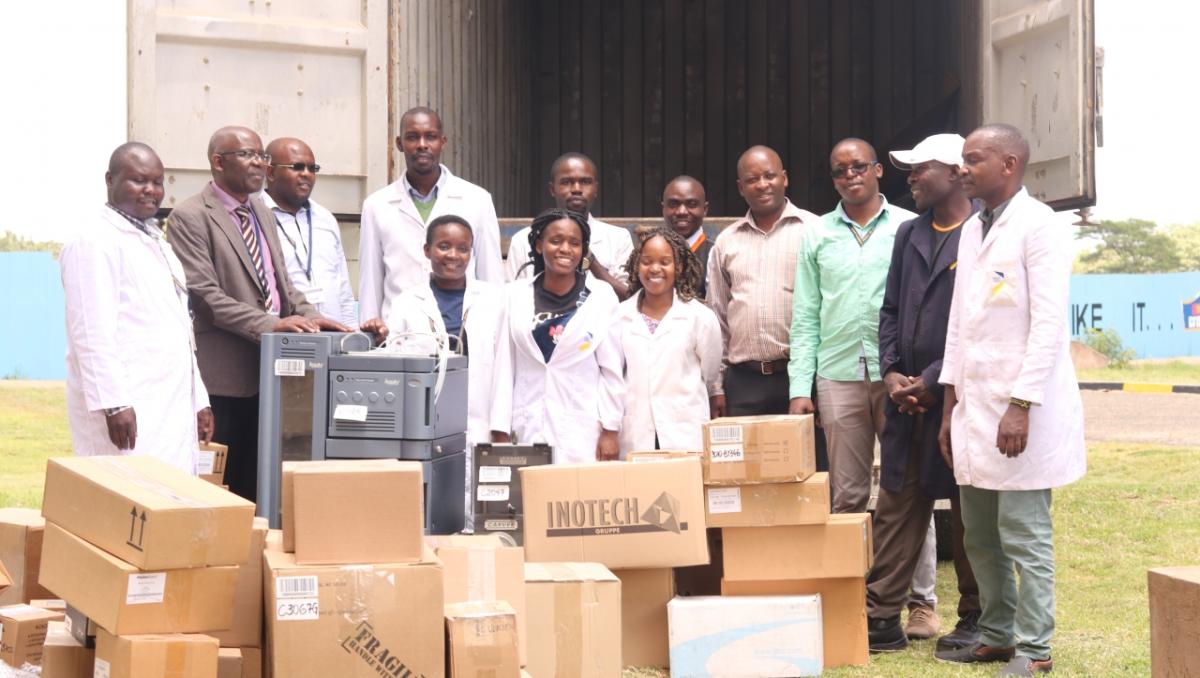MilliporeSigma Partnership Spotlight: Seeding Labs
For more than 10 years, we have partnered with Seeding Labs, a global nonprofit organization that aims to empower every scientist to transform the world. Through our partnership, we are continuing to strengthen 45 global Instrumental Access science, technology, engineering and mathematics (STEM) hubs in developing countries throughout Africa, South America and Asia. This will help to power research, hands-on scientific education and community-centered development through a company-wide equipment donation effort.
We also promote global knowledge-sharing as the founding sponsor of the organization’s TeleScience platform, which is designed to accelerate teaching and research across the scientific community, and features educational videos and sessions created and led by MilliporeSigma employees.
We sat down with Christina Viola Srivastava, director of programs at Seeding Labs, to highlight how the organization is working to ensure scientists have the tools, training and connections needed to be on the cutting edge of global discovery.
1. Please explain what Seeding Labs does and its mission.
Seeding Labs was founded on the premise that scientific talent is everywhere, but resources are not. Our goal is to address this gap by providing scientists and their students in under-resourced countries with access to modern laboratory equipment, as well as other critical resources that foster a robust scientific infrastructure.
Our mission—to empower every scientist to transform the world—speaks to the idea that we can build bridges across the global scientific community to find solutions to our shared challenges. These include issues that affect us all, like emerging pandemics, climate change and non-communicable diseases.
2. Tell us about your role at Seeding Labs.
As director of programs, I’m responsible for designing, implementing and measuring the success of our programs. In the nonprofit world, these are kind of like our product. We’re in the business of changing the world for the better, and our programs are how we create that change.
I’m involved in all aspects of our programs, from recruiting and selecting the right partners to incorporating their input and feedback. It’s my job to make sure that we stay on track and make as much progress as we can toward accomplishing our mission. I use the data we collect to make evidence-based refinements to our programs, so our work has the greatest impact possible.
3. What programs does Seeding Labs offer?
We currently have two programs: Instrumental Access and TeleScience. Both are designed to eliminate barriers to research and teaching in the developing world.
Through Instrumental Access, we connect universities and research institutes in developing countries with surplus laboratory equipment and supplies provided by our network of equipment donors. This is absolutely critical, because lack of equipment puts severe limitations on what can be accomplished in terms of research and teaching.
We hear all the time from extraordinary researchers who are passionate about solving problems, but they can’t do it with empty labs. We hear about undergraduate students who read about laboratory experiments in books because there isn’t enough equipment to support practical teaching. We hear about graduate students who have to choose between limiting themselves to survey research or traveling abroad. Instrumental Access uses surplus equipment from generous donors here in the U.S. to fill this gap.
TeleScience fills another critical gap: knowledge-sharing.
4. How has Seeding Labs’ TeleScience platform helped students and scientific researchers around the world?
In a scientific research hub like Boston, where we’re based, researchers have a huge community to consult about experimental design, equipment questions or even career development questions. It can be as simple as walking down the hall to ask an expert about a new technique. But in developing countries with emerging scientific communities, it’s much harder to make those connections.
TeleScience is designed to be a knowledge-sharing platform for scientists worldwide to share their lab tips and hacks—the things that may not be in the manual or written down in a standard operating procedure, but nonetheless are helpful to know. You don’t have to be in a scientific hub like Boston to share or access this information—you can tune in to TeleScience from anywhere, which has been especially useful during the COVID-19 outbreak.
5. What feedback have you received from TeleScience users?
Across our network of global scientists, we have heard that TeleScience videos are a helpful complement to coursework for students—and a useful teaching aid for faculty. Recently, a scientist who directs research, innovation and development at his university in Nigeria discovered the TeleScience platform and asked to include it as an online resource for the entire university to use.
We’re working to get scientific equipment into as many labs as we can through Instrumental Access, but until then, we also hear from students who appreciate the opportunity to learn more about various pieces of lab instrumentation that they currently don’t have access to. The TeleScience platform is easily accessible no matter where you are in the world, and we have viewers from over 140 countries and counting!
It’s important to note that we also hear from the video presenters about how much they enjoyed volunteering for TeleScience. Creating a video gave them a way to contribute to the global science community. One participant said that volunteering for TeleScience was a way to “pass on the knowledge that was given to me by somebody else, and enrich the life of another person. That is a great satisfaction to me.”
6. What is the most challenging part about working in global science? How has Seeding Labs overcome this challenge?
The most challenging part is staying focused on what is feasible now while also planning for growth. We want to help as many scientists as we can, as fast as we can, because we believe that science has the answers to so many of our global challenges. Yet, we’re a team of nine dedicated people manning a global supply chain and trying to change the world. That effort is made easier when we have strong partners like MilliporeSigma, whose support powers our work and has allowed us to grow and expand our impact over the past decade.
Eventually, I’d love to reach a point where we put ourselves out of business—meaning that every lab in all of the developing countries worldwide has the scientific equipment it needs to pursue its research goals and train the next generation. Until then, we’ll keep at it.
7. What is one skill you think is valuable to have when working in the nonprofit sector?
At Seeding Labs, we look for people who have a healthy respect for data and evidence, and who are also comfortable and determined in the face of uncertainty—like any entrepreneur building something new. For better or worse, we’re one of the only NGOs in the world attempting to address the problems we work on at scale. Building our programs and organization has required a lot of creative problem-solving, often with very little precedent to guide us. In order to do that, we’ve had to get comfortable with risk and commit to finding a way forward, no matter what obstacles are thrown at us.
Across the sector as a whole, a strong connection to your organization’s mission will serve you well. A healthy sense of humor helps, too.
8. How has MilliporeSigma’s partnership with Seeding Labs supported the organization’s mission?
MilliporeSigma stands out among our partners by not just stating its sustainability and social business innovation objectives, but by also truly making the commitment and putting those values into action. MilliporeSigma has supported Seeding Labs in three ways, which together, make a huge global impact.
First, through equipment donation to our Instrumental Access program, MilliporeSigma has helped build scientific infrastructure where it’s needed most in the world. Equipping university labs in developing countries accelerates research while also giving tens of thousands of students hands-on educational opportunities. Across the globe, this ensures a pipeline of well-trained STEM graduates ready to join the global scientific community and make a difference in their communities and the world.
Secondly, MilliporeSigma makes employee engagement a priority. In addition to volunteering for TeleScience, MilliporeSigma’s employees continually help identify surplus equipment to donate to Instrumental Access. Over the years of our partnership, we’ve built and refined a donation process that meets MilliporeSigma’s sustainability and social business innovation goals while fueling Instrumental Access.
And finally, through investing in Seeding Labs, MilliporeSigma has given us the opportunity to measure our impact and continue working toward our mission. That support has helped us equip 105 labs in 37 developing countries with scientific equipment that would cost more than $38 million to replace. Thanks to that support, scientists are searching for new drugs, discovering cures and creating innovative solutions that will benefit us all.
9. What has been the most rewarding part about working for Seeding Labs?
The most rewarding part, by far, is being in a position to put the tools of modern science directly into the capable hands of the scientists we support. We have the privilege of getting to know our scientists as people and as partners over the course of months or years as we collaborate. So many of them have incredible personal stories.
But what I find most inspiring is how grounded they are in the practical benefits of their work. Their goals are to increase food security for the communities they live in, to find cures for diseases their loved ones have suffered from, or to prepare and inspire their students to become their countries’ next generation of researchers, healthcare workers, engineers, farmers and teachers.
It’s true that scientists everywhere share similar goals, but the ones I’ve met through Seeding Labs have a different sense of urgency and immediacy. They already have the skills, knowledge and determination they need to solve problems. With better access to resources, there’s no limit to what they can accomplish.
10. Is there anything else you’d like to add?
We’d love to welcome new members into our community of donors who, like MilliporeSigma, are changing the map of global science through partnership with Seeding Labs. You can check out our website or reach out to us at giving@seedinglabs.org.

